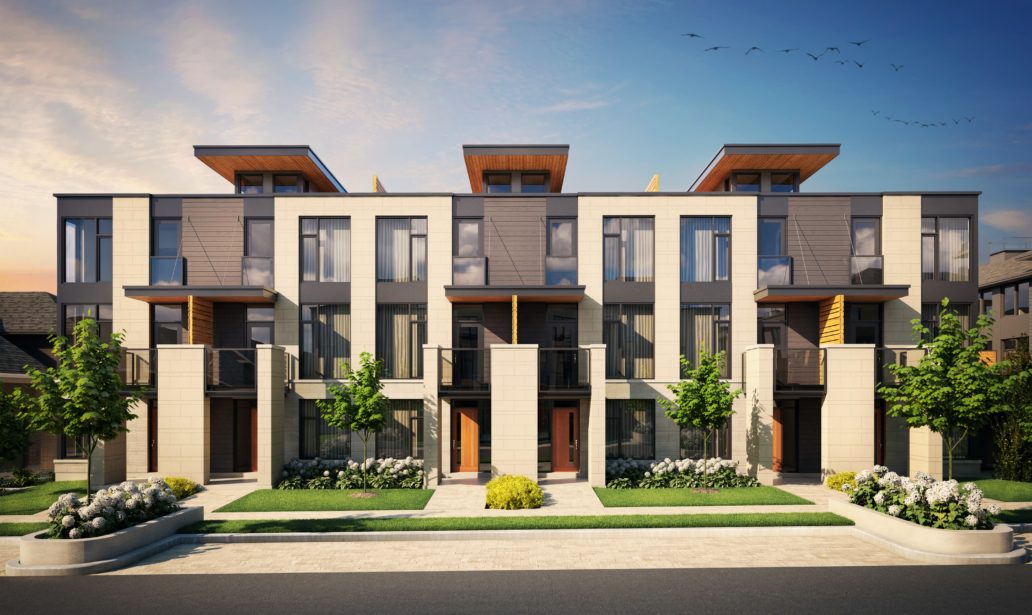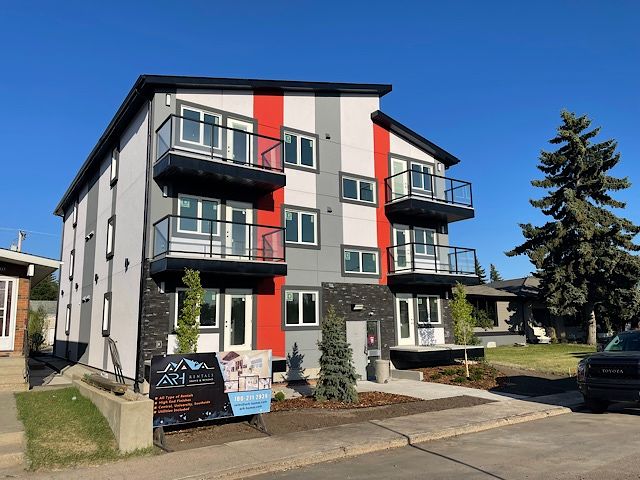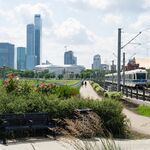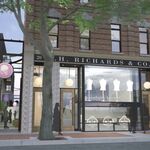EdmTrekker
Senior Member
It's rare a London Drugs closes. I wonder what local changes have happened there ... Superstore moved into the area and can beat London Drugs on price ... is there other competition or factors at play?
No offence to you, as I'd also hope that we could achieve more density. But demand is there for cheap houses in the suburbs, and not everyone can afford to have a single family detached house in central Edmonton. If Edmonton doesn't allow for development in the suburbs, it will simply shift to surrounding communities such as Leduc, St. Albert, Sherwood Park, etc. Getting the developers to pay a fair price for the land so the city isn't losing money on expansion is another story (so if that is your view on limitations on cheap detached homes, then I agree with you.)Yeah, our market will grow into it. Need more DT, high paying employers though and more limitations on cheap detached home construction in the burbs. As long as you can buy a brand new infill for under 700k, itll be hard to sell condos this small for 750k.
The cut backs on suburban development would have to be coupled with other strategies to avoid people simply buying in sherwood park, st albert, leduc, etc. Edmonton is still the economic and cultural heart of the region.No offence to you, as I'd also hope that we could achieve more density. But demand is there for cheap houses in the suburbs, and not everyone can afford to have a single family detached house in central Edmonton. If Edmonton doesn't allow for development in the suburbs, it will simply shift to surrounding communities such as Leduc, St. Albert, Sherwood Park, etc. Getting the developers to pay a fair price for the land so the city isn't losing money on expansion is another story (so if that is your view on limitations on cheap detached homes, then I agree with you.)
But isn't that a luxury that we tend to enjoy as Edmontonians? Having short commute times is one of the best things about living in the city as compared to other major centres. I understand that your goal is to push people to public transit, and it would definitely work. Incentivizing central living also means people giving up single family homes to live in condos or row housing (so I don't see how this is better for most people).The cut backs on suburban development would have to be coupled with other strategies to avoid people simply buying in sherwood park, st albert, leduc, etc. Edmonton is still the economic and cultural heart of the region.
A good start would be to stop subsidizing commuting via car. That would immediately incentivize central living and de-incentivize moving further out. It's still way too easy and cheap to drive the half hour or 40 mins in from the suburbs to wherever the office or cultural event is being held, and all of the people and businesses who are located centrally are subsidizing it via their property taxes.
Incentivizing central living also means people giving up single family homes to live in condos or row housing (so I don't see how this is better for most people).
However one of the best things about having a personal vehicle is the time it saves on commuting every day. Unless one lives within walking distance of an LRT station, and having a workplace/school that is on an LRT line, public transit just consumes too much time. Promoting a good road transportation network actually has a very significant impact on a majority of Edmontonians' quality of life.
I understand where you're coming from, but the war on cars just seems very impractical.
Honestly, we need fewer cars in Edmonton. I'm not sure if it's currently permitted under the Municipal Government Act, but council needs to work with the upcoming NDP provincial government to put in congestion and toll charges if anyone wants to drive into downtown. That's the progressive approach that's working for many global cities. Then watch the development in the far suburbs grind to a halt, and developers will focus on downtown .
I understand where you come from, but there are a few things to consider here:Downtown after work heading south on 109 Street to the High Level bridge is already very congested. I can't imagine how it would be if we attract more companies to relocate downtown, and added thousands of well paying jobs. And let's not kid ourselves; most would likely drive to and from their office. Yes, the Valley Line will help once it opens, but it's just not going to work until government encourages people to take transit rather than drive. Hence, the road and congestion tolls to discourage it.
No offence to you, as I'd also hope that we could achieve more density. But demand is there for cheap houses in the suburbs, and not everyone can afford to have a single family detached house in central Edmonton. If Edmonton doesn't allow for development in the suburbs, it will simply shift to surrounding communities such as Leduc, St. Albert, Sherwood Park, etc. Getting the developers to pay a fair price for the land so the city isn't losing money on expansion is another story (so if that is your view on limitations on cheap detached homes, then I agree with you.)





I love youWho said single family homes in central Edmonton? Plenty of ways to change the way a city grows without making a false dilemma between towers and houses. Some good examples:






^^Almost all of those exist or will be built in central Edmonton
The idea of what a city should be needs to be asked and redefined in our North American context. I'm all for people having the option of a low-density suburban car-centric lifestyle and I think its a valid choice depending on profession, personal life goals, etc., but I believe that these places cannot be reliant on urban areas for their existence (as the situation is now).The construction of (most) suburban areas is heavily subsidized with roads, water systems, electricity, natural gas, schools, etc. from the local and provincial government to the point where almost all the private developers have to do it build the product (the houses) in order to make a profit. This is why houses are so "dirt cheap" in peripheral communities, and let me tell you @jason403 , maybe if you had to pay the true full price of the life you'd consider the "condos and townhomes".
But I could be wrong




